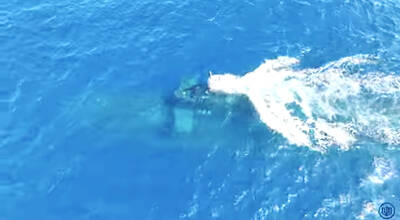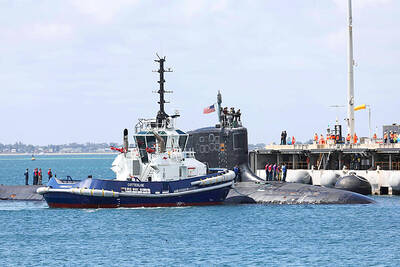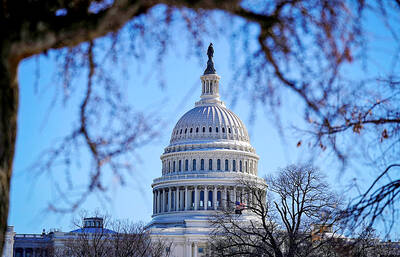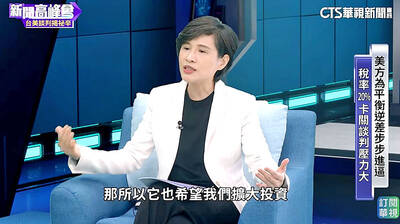Global auditing firm Ernst and Young has withdrawn a report saying China's non-performing loans (NPLs) totaled over US$900 billion, apologizing for what it called an "erroneous" publication.
"As it contains errors, we are withdrawing the report," the firm said in a statement. "We apologize that this erroneous report was issued. We sincerely regret any misleading views that the report conveyed."
The size of China's bad loans is a figure of immense importance, as it serves as a measure of the banking sector's financial health.
Ernst and Young's decision came after China's central bank said the report, which claimed NPLs for the four large state-owned commercial banks totaled US$358 billion, "seriously distorted" the actual situation.
In its statement retracting the Non-Performing Loan Report, issued on May 3, Ernst and Young said a US$911 billion estimate for China's NPLs had been based on the wrong assumptions.
"Throughout the report this amount was identified as a potential future amount that includes NPLs totaling approximately US$358 billion for the big four commercial banks," it said.
"Upon further research, Ernst and Young Global finds that this number cannot be supported, and believes it to be factually erroneous," it said.
It said the report had not gone through the normal internal review and approval process before it was released to the public.
China's central bank, which was not immediately available for comment yesterday, had adopted unusually harsh vocabulary to refute Ernst and Young's claims in a statement posted on its Web site late last week.
"The report not only seriously distorts the actual assets quality of the Chinese banking sector, its statements on several financial institutions are also seriously wrong and its conclusions are absurd and incomprehensible," the People's Bank of China Web site quoted an unnamed official as saying.
Ernst and Young said the firm was alerted to the mistake by its China branch, but said it had not been approached by the Chinese central bank or other Chinese authorities on the errors.
"Quality and integrity is what we believe in, and we have to do it right," said Annesa Leung (
The company hoped the mistake would not impact the firm's business in China, she said.
Ernst and Young's report, widely quoted earlier this month, came as foreign institutions continued to move into the Chinese banking sector and as the nation's big banks sought a higher international profile.

CSBC Corp, Taiwan (台灣國際造船) yesterday released the first video documenting the submerged sea trials of Taiwan’s indigenous defense submarine prototype, the Hai Kun (海鯤), or Narwhal, showing underwater navigation and the launch of countermeasures. The footage shows the vessel’s first dive, steering and control system tests, and the raising and lowering of the periscope and antenna masts. It offered a rare look at the progress in the submarine’s sea acceptance tests. The Hai Kun carried out its first shallow-water diving trial late last month and has since completed four submerged tests, CSBC said. The newly released video compiles images recorded from Jan. 29 to

DETERRENCE EFFORTS: Washington and partners hope demonstrations of force would convince Beijing that military action against Taiwan would carry high costs The US is considering using HMAS Stirling in Western Australia as a forward base to strengthen its naval posture in a potential conflict with China, particularly over Taiwan, the Wall Street Journal reported on Saturday. As part of its Indo-Pacific strategy, Washington plans to deploy up to four nuclear-powered submarines at Stirling starting in 2027, providing a base near potential hot spots such as Taiwan and the South China Sea. The move also aims to enhance military integration with Pacific allies under the Australia-UK-US trilateral security partnership, the report said. Currently, US submarines operate from Guam, but the island could

RESTRAINTS: Should China’s actions pose any threat to Taiwan’s security, economic or social systems, China would be excluded from major financial institutions, the bill says The US House of Representatives on Monday passed the PROTECT Taiwan Act, which states that Washington would exclude China from participating in major global financial organizations if its actions directly threaten Taiwan’s security. The bill, proposed by Republican Representative Frank Lucas, passed with 395 votes in favor and two against. It stipulates that if China’s actions pose any threat to Taiwan’s security, economic or social systems, the US would, “to the maximum extent practicable,” exclude Beijing from international financial institutions, including the G20, the Bank for International Settlements and the Financial Stability Board. The bill makes it clear that China must be prepared

Taiwanese trade negotiators told Washington that Taipei would not relocate 40 percent of its semiconductor production to the US, and that its most advanced technologies would remain in the nation, Vice Premier Cheng Li-chiun (鄭麗君) said on Sunday. “I told the US side very clearly — that’s impossible,” Cheng, who led the negotiation team, said in an interview that aired on Sunday night on Chinese Television System. Cheng was referring to remarks last month by US Secretary of Commerce Howard Lutnick, in which he said his goal was to bring 40 percent of Taiwan’s chip supply chain to the US Taiwan’s almost